Editor’s Note: This month, that is August 2020, FII’s #MoodOfTheMonth is Campus Experiences, where we invite various articles to highlight the diverse range of encounters we often confront when we are a part of any educational institution or space for learning be it schools, universities, colleges, tuitions and home. If you’d like to share your article, email us at pragya@feminisminindia.com.
Annie Besant, Isabella Thoburn, Dorothy De La Hey—what do these women have in common? They established the earliest women’s colleges in India. Single-gender education has often come under scrutiny for its outdated principles of exclusion. Seen as both liberating and constricting spaces, the advent of the 21st century has ignited the debate of relevance of all-women educational institutions. A major question in such debates is—Do these colleges help prepare women for modern life? I will argue affirmatively to this conundrum because my experiences dictate me to do so.
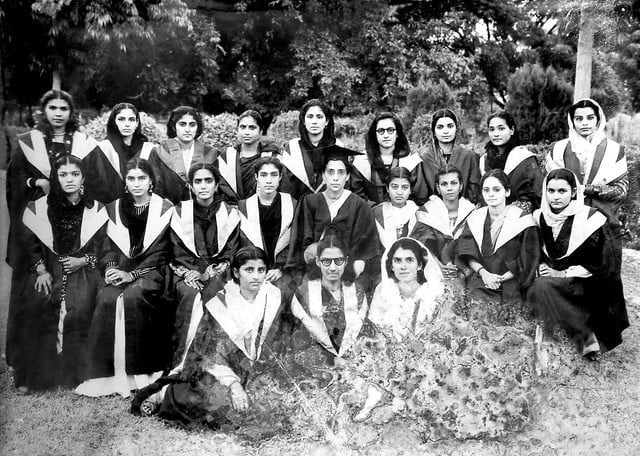
My Story: From Co-ed School To Women’s College
2014 was the year I was supposed to choose a major and a college where I’d like to pursue it. This decision was supposed to set my career trajectory. I was a teenager suffering from severe anxiety issues. To avoid any unwanted repercussions of the decision-making process, I let my parents decide for me. I was ill-informed of the prospects of studying in a liberal arts college. However, what scared me the most was that I was to enroll in a women’s college. Let me rewind a little bit so that the context of this becomes more clear.
I completed my schooling from a co-educational institution. Of those 14 years, I spent 7 combating mental health issues. I was bullied and harassed by teachers and my ‘girl-gang’ alike. When I was in middle school, a teacher called my home during school hours to warn my mother of my behaviour. I was talking too much to boys and that’s the slippery slope to being a slut. I don’t know why that teacher made such a conclusion. Maybe because I had started growing my boy-cut curly hair—after all, girls do that only to attract guys!
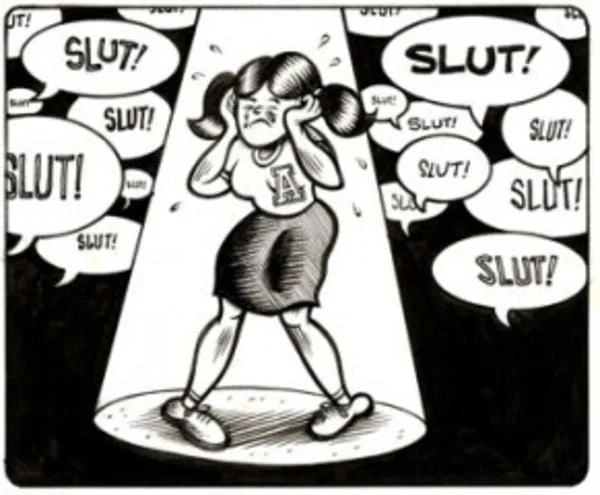
I did talk more to guys. That was a defense mechanism I developed due to the back-stabbing and slut-shaming I received from my so-called ‘girl gang’. On days I was absent from school, they spent the lunch hours discussing how I would love to wear short-skirts in order to attract the opposite gender. One of the girls, let’s call her X, used to get angry at me for not watching her favourite TV show or for not buying the clothes she suggested. When I started forming new friendships, it was so upsetting to X that she started spreading rumours about me, and labelled me as characterless.
The taboo associated with all-female educational institutions comes from aeons old conditioning. Some believe that college is a way to start dating or finding a future husband. I assume that this was the major reason I was bombarded with questions like, “Don’t you get bored seeing girls all day?” or “When are you coming out as a lesbian?”
High School was no different. When sections were allotted for different streams, my no-drama-friends and I got separated. I met them during lunch hours but the prying eyes always followed. This time my class-teacher called up my mother to tell her that I have several boyfriends without talking to whom I cannot live. This vicious cycle seemed never-ending. The teenager in me was struggling to survive. I even tried to mould myself and become a ‘good girl’ but all my efforts were in vain. All these instances imprinted an image of women in my mind—they were superficial and atrocious!
However, contrary to my experience of a co-ed school, an all-female college proved to be a boon in disguise.

While I spent my freshman year keeping myself isolated, I found a bunch of supporting women who went out of their way to help me. My professors became a great support system—one with whom I could share my ‘guy-problems’ and academic insights alike. When I dressed up, I was called ‘pretty’ instead of being slut-shamed. When I met with a fatal accident, until my parents arrived, my hostel-mates looked after me like my family. By the time it came to farewell, the scared fuccha in me had found lasting friendships. I was guided into womanhood in the best possible way. My women’s college helped me shed my stigmas and heal by simply making me a part of a sorority.
What Prompted The Culture Of Women-only Colleges In India?
Women-only colleges were established as a part of an all-India movement that aimed at claiming the right to education for women during the 19th century. Kolkata’s Bethune College is India’s first women’s college. John Bethune founded it in 1879. Kadambini Ganguly and Chandramukhi Bose, the first two female graduates of the British Empire, graduated from Bethune. Kadambini Ganguly was among the first female physicians in South Asia to be trained in western medicine. Chandramukhi Bose went on to become the first female head of an undergraduate academic establishment in South Asia when she took charge as the Principal of Bethune College.
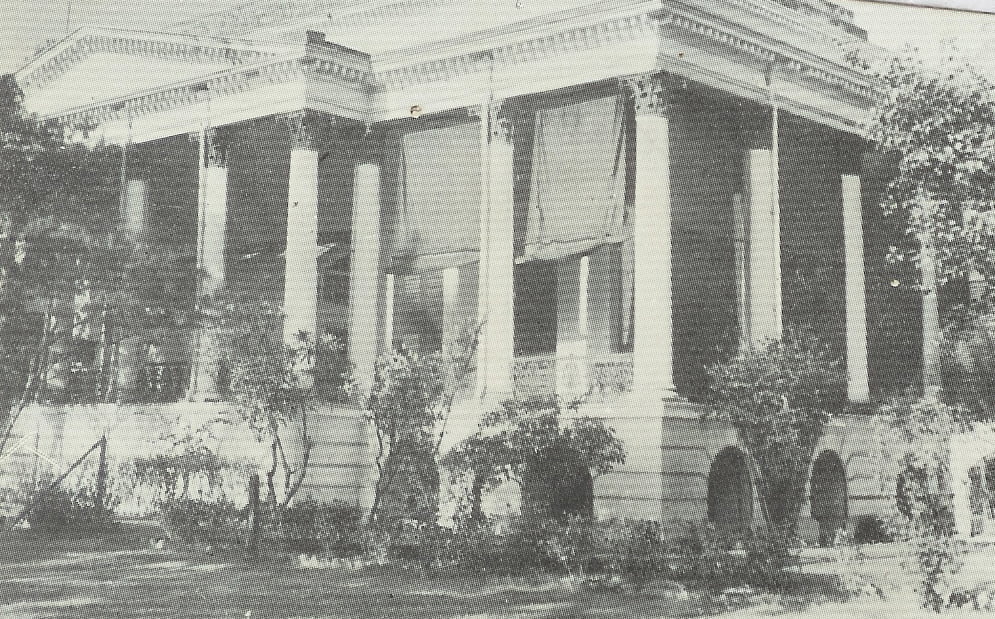
Isabella Thoburn College, Lucknow, is the first Christian college for women in South Asia. Isabella Thoburn started it in 1870 as a girls school in a single room with merely 6 enrollments in Aminabad. It was converted into a college in 1886. Following in the footsteps of Ms Thoburn, Dorothy De La Hey helped in establishing the third oldest women-only college in India—Queen Mary’s College, Chennai. It started as Madras Women’s College in July 1914 (renamed in 1917) with an initial intake of 33. Ms De La Hey was the first principal of the college.
Established in 1924, Indraprastha College for Women is the oldest women’s college in Delhi. Its origins lie in Indraprastha Girls School founded in 1904 by Delhi theosophists led by Lala Jugal Kishore at the call of Annie Besant. The University of Delhi soon recognised it as a constituent college. Since then the number of women’s colleges affiliated to the University of Delhi has grown to 22.
The goal of all-women educational institutions is not physical and social separation of men and women. Rather, it aims at fostering a community in which women have greater access to engage in a variety of avenues.
Is Studying In An All-female College A Taboo?
The answer to this question begs you to have an objective view. Academia is full of accounts by men for women, and of women. All-female colleges provide an opportunity to start and explore a parallel discourse that is by women, of women, and for women. Such discourses influence and challenge the age-old norms that patriarchy has transpired. I believe the autonomy provided by all-female colleges to women to express themselves is why some orthodox thinkers believe they are a threat. The Instagram post by Zikr-e-Dilli highlighted how 90s matrimonial ads acted upon this threat by specifically mentioning—”Girls from JNU, LSR and Miranda House need not apply.“
The taboo associated with all-female educational institutions comes from aeons old conditioning. Some believe that college is a way to start dating or finding a future husband. I assume that this was the major reason I was bombarded with questions like, “Don’t you get bored seeing girls all day?” or “When are you coming out as a lesbian?” Frankly, it made me wonder if the person asking me such absurd questions had even a vague idea about my college—its geography, social and academic events! The goal of all-women educational institutions is not physical and social separation of men and women. Rather, it aims at fostering a community in which women have greater access to engage in a variety of avenues.
Are Women’s Colleges Relevant In Today’s Times?
Women’s colleges have successfully managed to create a space outside the male gaze that nourishes women as harbingers of change. I do not believe that their relevance has diminished however, it might have changed tracks.
Opponents of single-gender colleges often claim that all-women educational institutions foster gender ignorance. This can affect one’s ability to work with the opposite gender and the ability to form meaningful relationships with them. My experience of studying in an all women’s educational institution has proven quite contrary to it. I broke out of my introverted behaviour and started taking on non-stereotypical leadership roles. An article on Huffington Post states that only 2% of colleges in the US are exclusive to women yet, more than 20% of women in Congress and 30% of rising women in corporate belong to women-only colleges. Combined together with my personal experience, these figures show how female-only colleges help in the growth of a woman as an individual.
Also read: How LSR and Other Women’s Colleges Limit Their Students
Attending an all-female college is a fit for some and not for others. I do not reject the limiting attitude of certain faculty members that works against the basic goals of all-female colleges. However, it cannot be denied that all-women colleges take-off where several co-ed institutions fail.
About the author(s)
Sugandhaa's major areas of interest are aesthetics and feminism. She loves engaging with historical fiction - when she isn't reading it, she is daydreaming about it!
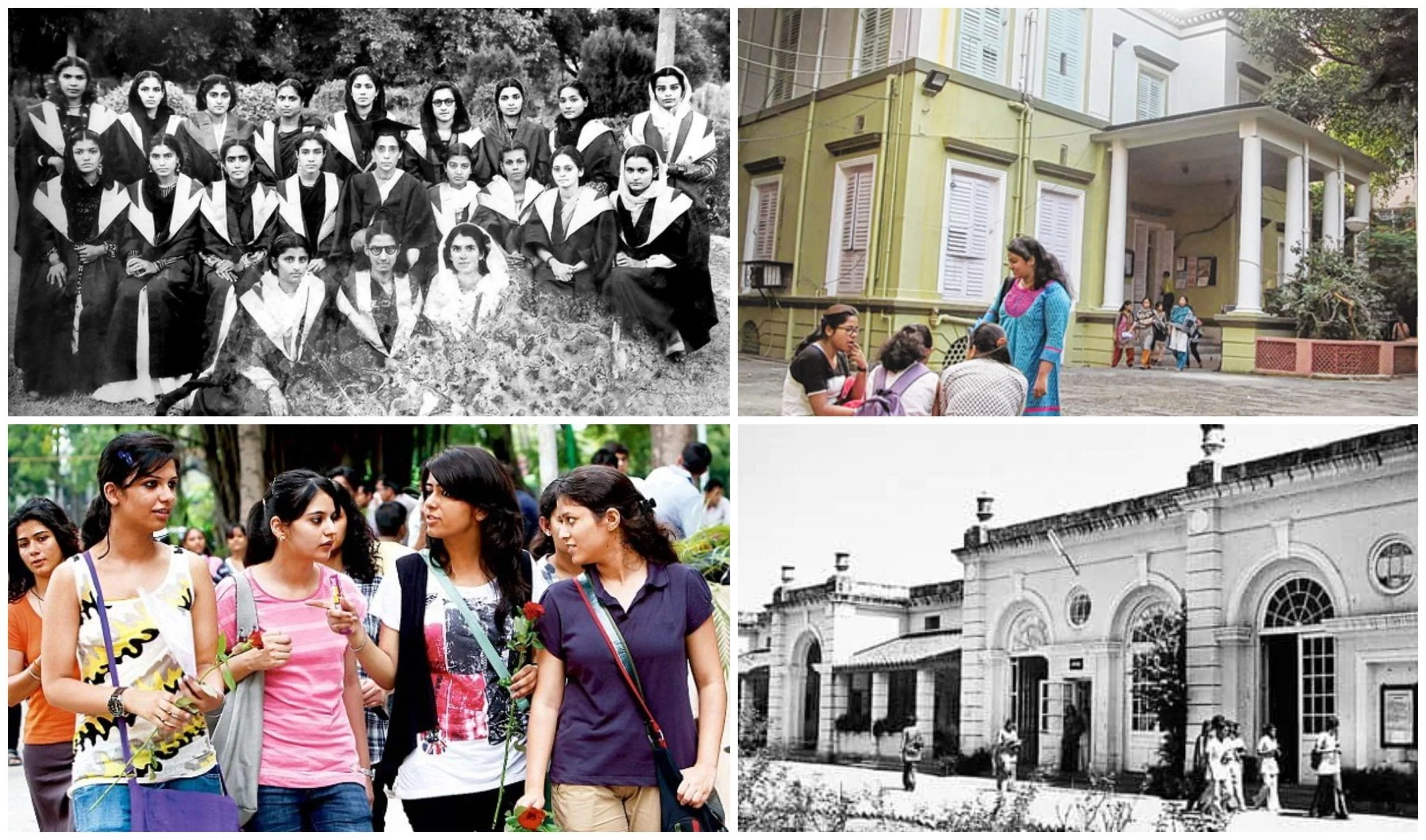




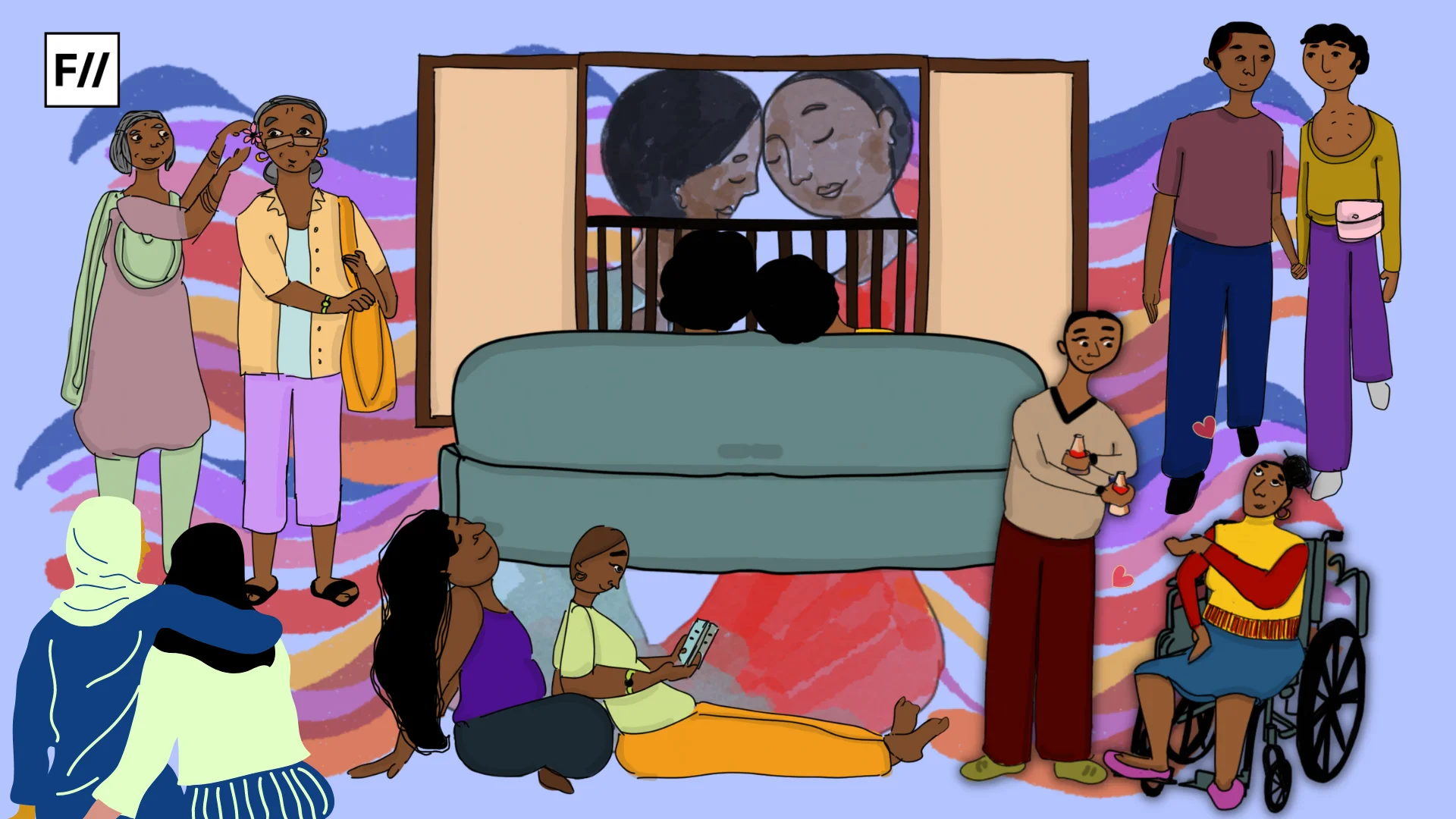

Agreed. Women can be the greatest champion or greatest threat to fellow women. It’s hard to find company that supports you through and through. I commend the author for having the courage to open her life to new people even after such incidents happened in her life.